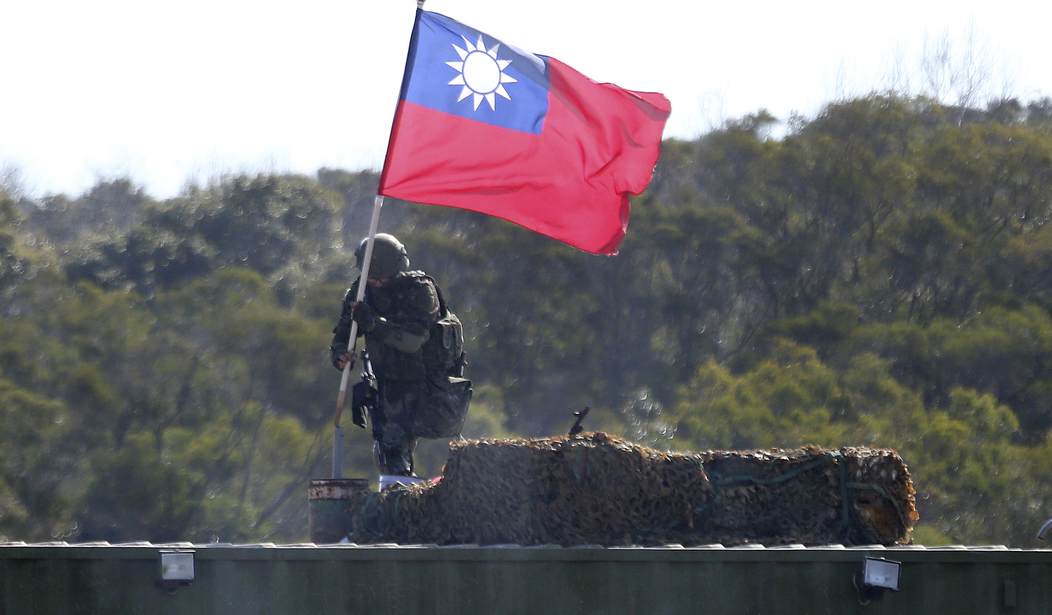The Biden administration's policy weaknesses and disorganization are the unifying denominator in the two current national security crises that we are facing: The emerging supremacy of China, and Russia's impending overpowering of Ukraine. These two causes, together with the daily confusion in Washington produced by a president who is not up to the role of governing the world's sole superpower, and his staff of weak, ineffectual and compromised Cabinet and national security officials, have placed the U.S. in an unpleasant position.
Both China's and Russia's policies are influenced by the Brookings Institution. The Chinese Communist Party exerts significant influence on and funds the Brookings Institution. It's worth remembering that Secretary of State Antony Blinken, CIA Director Bill Burns and National Security Adviser Jake Sullivan are all linked to the Brookings Institution, and by extension, the CCP.
The United States' relationship with Taiwan has been affected by decades of shifting policy goals, molded primarily by global war and its aftermath. President Joe Biden has sown international confusion with his statements on the "Taiwan agreement," most recently in his call with Chinese President Xi Jinping. The Taiwan agreement does not exist; Biden is referring to a concept that isn't real.
After losing the civil war with the Communist Chinese in 1949, Chinese Nationalists (anti-Communists) evacuated mainland China, forming the People's Republic of China. The Taiwan Relations Act of 1979 added to the "strategic ambiguity" of U.S. policy. Our national security aims would be furthered if we "maintain and develop wide, close, and cordial commercial, cultural, and other connections between the People of the United States and the People of Taiwan," according to that act. For decades, we have been strategically allied with the Taiwanese people.
Recommended
From 1949 to now, the PRC has steadily eroded diplomatic prestige and international connections with Taiwan, resulting in a diplomatic and commercial focus on the PRC in the U.S., as well as worldwide. Nonetheless, we have supported Taiwan with weaponry, strategic support, intelligence support and military support over the years. Taiwan is also a significant commercial partner for the United States.
We have no similar history with Ukraine, on the other hand. Ukraine's relationship with the Soviet Union, and later the Russian Federation, has changed over many years as the political winds in Ukraine and Russia shifted back and forth, both during the Cold War and following the former Soviet Union's disintegration. Russia and Ukraine have a large geographical border. The underlying denominator is once again the United States' feeble policy declarations and weak stance in projecting strength and policy purpose to both China and Russia in two complicated, critical strategic engagements.
To oppose Russia's military buildup on Ukraine's border, policy choices are easily available. Biden exacerbated the current problem by shutting down the Keystone XL Pipeline with Canada as soon as he took office and then approving the Nord Stream 2 Russia pipeline to transport natural gas to Germany and Central Europe.
Russia is preparing to station up to 175,000 troops and equipment near Ukraine's border. The United States is powerless to prevent a Russian military entry into Ukraine. Two strategic economic choices, however, remain on the table. One, or all, of these factors taken together might make Putin reconsider his decision to enter combat engagement in Ukraine, especially given the actual economic danger that Russia faces in the global gas and fuel market. Anbar Province has Iraq's largest undeveloped natural gas deposit. It is expected to contain 3 trillion cubic meters of natural gas. Western Iraq is a market that might be easily explored via the Turkish pipeline to Europe.
A military clash between China, Taiwan, the United States and our strategic allies in the ANZUS pact (Australia, New Zealand and the United States) is not in the interests of China, Taiwan, the United States or our ANZUS partners. The Trump administration's trade policies, tariffs and economic containment and pressure tactics worked for four years. Some daring strategic economic and policy actions might alter the CCP's risk assessment of a forcible takeover of Taiwan.
It's worth noticing the parallels between Biden's diplomatic catastrophe and Jimmy Carter's presidency, which imploded after only 11 months in office. Many of Ronald Reagan's policy achievements throughout his two administrations may be traced back to decisions taken by Carter in his final year in office. Carter altered many of his failing ideas much too late in his administration to avoid being condemned to history's ash heap. Reagan capitalized on Carter's late administration policy moves, turning them into great historical triumphs. If Biden still retains any form of political know-how, he will immediately begin working to change the tide of history in the United States' favor, ensuring that the country is once again energy independent, economically powerful and, most importantly, a dependable and steady international partner. On a fair playing field, Russia and China cannot compete economically with the United States.

























Join the conversation as a VIP Member